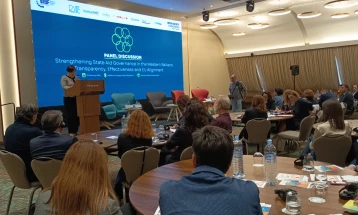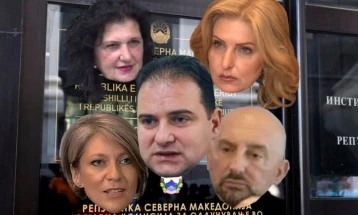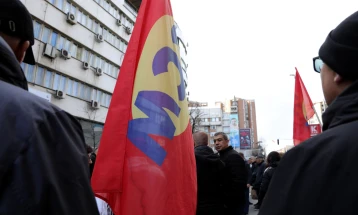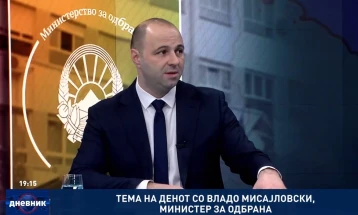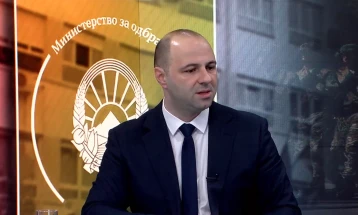Online media outlets to moderate discriminatory and hateful comments: discussion
- Violations of the codex for responsible journalism are a daily occurrence, especially in online media. The moderation of comments posted under articles and the removal of offensive and discriminatory comments should be taken seriously since media is becoming a platform allowing hate speech to spread further, said panelists at Wednesday's panel discussion on “Discrimination and Hate Speech in Media and Public Communication” organized by the Institute for Media and Analytics (IMA).
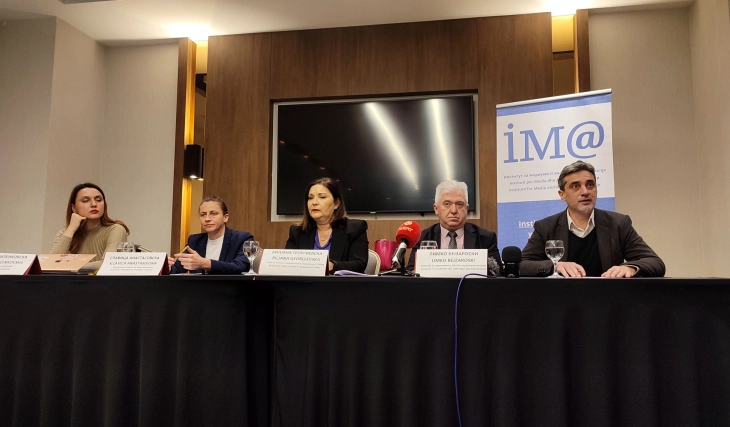
Skopje, 18 December 2024 (MIA) - Violations of the codex for responsible journalism are a daily occurrence, especially in online media. The moderation of comments posted under articles and the removal of offensive and discriminatory comments should be taken seriously since media is becoming a platform allowing hate speech to spread further, said panelists at Wednesday's panel discussion on “Discrimination and Hate Speech in Media and Public Communication” organized by the Institute for Media and Analytics (IMA).
According to panelists, the most common cases of discrimination and hate speech are on the basis of ethnicity, sexual orientation and gender identity. The perpetrators and targets of hate speech are usually young people, since they are the most frequent users of social media.
Limko Bejzaroski, the head of the Commission for the Prevention and Protection against Discrimination, said complaints related to public information and media were the second most common type of complaints received by the Commission in 2023.
Biljana Georgievska, head of the Council of Media Ethics of Macedonia, said over 90 percent of the complaints received by the Council are for online media.
“Mainly these are complaints that we get during the month when the rights of the LGBT community are marked, when the Pride Parade is held, most often these complaints refer to comments,” Goergievska said.

According to Georgievska media outlets should be more careful to also avoid sensationalist headlines that incite intolerance and attract discriminatory comments, as well as to avoid publishing photographs from sensitive events.
Slavica Anastasovska from the Helsinki Committee for Human Rights said the Committee has noted a continued growth of hate on social media, with young people usually being both the perpetrators and the victims of hate speech.
Anastasovska said they have submitted dozens of reports to the relevant authorities, but that no charges have been filed. She also urged online media outlets to pay more attention to moderating comments and the removal of hateful comments since, she said, they become viral.
“The peak this year was during, before and after the elections. The second peak of hate speech was during the Pride Parade, which is something that occurs every year when it is held,” Anastasovska said.
Sara Milenkovska from Coalition Margins said that anti-gender movements can be noted in the country, which, she said, have become part of the institutions and are now creating anti-gender policies and aim to silence activists.
“The country itself isn’t working to protect transgender individuals, and the main argument used by the Prosecutor’s Office to justify the lack of action in these cases is that the status of transgender individuals isn’t regulated in our country which is why they can’t be protected,” Milenkovska said.
IMA’s Petrit Saracini said the Insitute has noted that several months after the elections, topics “which polarize the public on an ethnic basis” continue to be present in the media.
“We can see that certain political actors in the country are trying to gain political points with this topic and they are using a heightened ethnocentric rhetoric which is also reflected with an interethnic confrontation... This is also being defined as patriotic hate speech that isn’t good for anyone, especially the citizens, regardless of their ethnicity. Since when these topics become dominant, they steer attention away from the real problems,” Saracini said.
Photo: MIA
